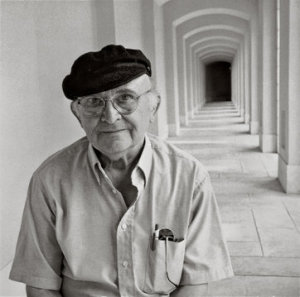
Rave Reviews for Retired BGU Professor’s Novel
Rave Reviews for Retired BGU Professor’s Novel
August 11, 2014
Israel Studies, Culture & Jewish Thought
In modern Israel, culture and history clash in numerous novels about the history of the Jews and their struggles. One of Israel’s top novelists, a BGU retired profressor of Hebrew literature, Aharon Appelfeld, recently released a significant new novel titled Suddenly, Love.
An excerpt from The New York Times Book Review follows.
Of the many challenges confronting the contemporary writer of fiction [and child survivor of the Holocaust], among the most vexing is the problem of goodness. How does one convincingly portray goodness in an age when the twin presiding deities are irony and violence, when the most feared transgression is the sin of sentimentality? Can there be a place for a character who seems genuinely selfless, motivated by benevolence, decency, the desire to be of help?
The gold standard for such a character is Flaubert’s Félicité, the devoted servant of A Simple Heart, which, while ironically conflating the Holy Ghost with a worm-eaten parrot, embodies virtue and dignity in a woman the world saw only in terms of her function: Her mistress was the envy of all the neighbors because of Félicité’s loyalty and thrift.
Flaubert’s novella never left my mind as I read Aharon Appelfeld’s remarkable new novel, Suddenly, Love. In the characters of Ernst and Irena, I felt as if I were encountering a failed Flaubert, cared for in his last illness by Félicité, both of them transplanted to Jerusalem, both of them touched by the Holocaust. For the questions Suddenly, Love poses are not only those of Jewish displacement, Jewish memory and Jewish identity. Woven in are also questions of language, of the proper relationship of words to life.
Ernst is a 70-year-old man living in Jerusalem who is ill and no longer able to comfort himself. He finds himself in need of assistance and finds it in Irena.
Irena does what she is supposed to: cooking, cleaning, ironing, etc. But she does much more than that. For Ernst, she provides a sort of comfort. This comfort grants Ernst the ability to look into his past, to understand the reasoning of his parents, and to condense all his thoughts in his last years on Earth.
Read the full review on The New York Times website.
Read about the Aharon Appelfeld Archives housed at BGU’s Heksherim Research Institute for Jewish and Israeli Literature and Culture.




